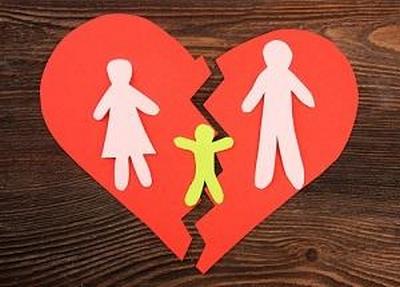Recent Blog Posts
Divorcing Parents Must Submit a Parenting Plan to the Court
 In 2016, sweeping reforms were made to the family law statutes in the state of Illinois. One of the most notable changes was the elimination of the old idea of child custody and the introduction of a new way of thinking. This new approach is called the “allocation of parental responsibilities,” and it focuses in a positive way on how each parent will contribute to raising their children in the wake of a divorce or breakup.
In 2016, sweeping reforms were made to the family law statutes in the state of Illinois. One of the most notable changes was the elimination of the old idea of child custody and the introduction of a new way of thinking. This new approach is called the “allocation of parental responsibilities,” and it focuses in a positive way on how each parent will contribute to raising their children in the wake of a divorce or breakup.
Understanding Parenting Plans
Today, parents who are involved in a divorce—or, in fact, any proceedings that address the allocation of parental responsibilities—are expected by law to create a written parenting plan proposal. This expectation is set forth in the Illinois Marriage and Dissolution of Marriage Act (IMDMA). The IMDMA recognizes that an agreement between the parents is almost always preferable to litigation in the courtroom, so parents are statutorily encouraged to develop a workable agreement if at all possible. The parenting plan agreement must address a number of required concerns, including but not limited to:
Divorce May Have Health Risks for Women, Fewer for Men
 Divorce has long been linked with a variety of health effects. Increased stress and anxiety, for example, are common during and immediately following the divorce process, which, in some cases, can evolve into full-blown depression. In other situations, a divorce offers an escape from a bad marriage, allowing a once-trapped spouse to experience a renewed sense of freedom and hope—resulting in overall better personal health. It turns out, however, that divorce could be affecting women differently than it does men, at least in terms of heart health. According to a recent study, women who were divorced had a higher risk of suffering from heart attacks than divorced men, who had to go through a second divorce before their heart attack risk increases.
Divorce has long been linked with a variety of health effects. Increased stress and anxiety, for example, are common during and immediately following the divorce process, which, in some cases, can evolve into full-blown depression. In other situations, a divorce offers an escape from a bad marriage, allowing a once-trapped spouse to experience a renewed sense of freedom and hope—resulting in overall better personal health. It turns out, however, that divorce could be affecting women differently than it does men, at least in terms of heart health. According to a recent study, women who were divorced had a higher risk of suffering from heart attacks than divorced men, who had to go through a second divorce before their heart attack risk increases.
The study, which was published in the medical journal Circulation: Cardiovascular Quality and Outcomes, was conducted by researchers from the Duke Clinical Research Institute at Duke University. The team analyzed data gathered from more than 15,000 participants between the years 1992 and 2010. Each participant was between the ages of 45 and 80 and had been married at least once. At the beginning of the study, 14 percent of the men and 19 percent of the women were divorced. Eighteen years later, more than 35 percent of the entire group had been divorced at least once.
No-Fault Divorce Basics in Illinois
 A couple may decide to end their marriage for any number of reasons. In some situations, the spouses may have different philosophies regarding money or parenting strategies. In other cases, one partner could have destructive tendencies such as an inclination to be unfaithful or a history of physical or emotional abuse. Regardless of what drives a wedge between married spouses, the law in Illinois only permits a divorce on the no-fault grounds of irreconcilable differences.
A couple may decide to end their marriage for any number of reasons. In some situations, the spouses may have different philosophies regarding money or parenting strategies. In other cases, one partner could have destructive tendencies such as an inclination to be unfaithful or a history of physical or emotional abuse. Regardless of what drives a wedge between married spouses, the law in Illinois only permits a divorce on the no-fault grounds of irreconcilable differences.
A Modern Approach for Modern Families
For many years, Illinois law allowed either spouse to seek a divorce on about a dozen separate grounds. All but of one these were so-called “fault grounds,” which meant that if certain negative or destructive behaviors could be proven, the guilty spouse would be “at fault” for the divorce. Fault grounds included things like infidelity, repeated abuse, abandonment, substance abuse, and others.
What You Need to Know About Relocating With Your Child
 The greater Chicago region is full of opportunities for the people who call the area home. With relatively little effort, you could find a new home or a new career very quickly, which might allow you to significantly improve your circumstances. Such opportunities are especially valuable following a major life change such as a divorce. If you have children, however, and are subject to the provisions of a court-approved parenting plan, there are some steps you may need to take before you go anywhere.
The greater Chicago region is full of opportunities for the people who call the area home. With relatively little effort, you could find a new home or a new career very quickly, which might allow you to significantly improve your circumstances. Such opportunities are especially valuable following a major life change such as a divorce. If you have children, however, and are subject to the provisions of a court-approved parenting plan, there are some steps you may need to take before you go anywhere.
Moving to a New Home
If your parenting plan gives you the majority of the parenting time with your child, one of your primary responsibilities is to ensure your child has the appropriate opportunities to spend time with his or her other parent. Children fare much better in the wake of a divorce when both parents remain an active part of the children’s lives, and you have a role to play in making that a reality. You cannot control whether the other parent actually exercises his or her rights regarding your child, but you must avoid making things more difficult than necessary.
Divorce May Actually Benefit Your Children
 Most of us are familiar with the concept of “staying in a marriage for the children.” There is a good chance that you know at least one couple whose happy marriage ended long ago but who have stayed together solely because they did not want to make life difficult for their children. If this describes your own marriage, however, you should be aware that a tense, hostile home environment is often considered to be worse for children than managing a divorce between their parents. While it may seem counterintuitive, your situation could be one in which it might be best to divorce “for the children.”
Most of us are familiar with the concept of “staying in a marriage for the children.” There is a good chance that you know at least one couple whose happy marriage ended long ago but who have stayed together solely because they did not want to make life difficult for their children. If this describes your own marriage, however, you should be aware that a tense, hostile home environment is often considered to be worse for children than managing a divorce between their parents. While it may seem counterintuitive, your situation could be one in which it might be best to divorce “for the children.”
Ending a Bad Situation
Just as there are many ways to create a happy family situation, there are many ways in which a home environment could become unhealthy. Parents who do not get along with one another often build up walls and cut themselves off emotionally—and, in many cases, physically. This behavior can lead to distant relationships with not only their spouse but with their kids as well.
Supporting an Adult Child with a Disability
 If you are a divorced, separated, or unmarried parent, you most likely recognize the importance of financially supporting your child. No matter what drove you and the other parent apart—if you were ever really together—you have a responsibility to provide for the child. While the state cannot legislate your moral obligations in participating in your child’s life, it can enforce your financial obligations. In most cases, your child support requirements will end once your child turns 18 and graduates high school, but if your child suffers from a disability, your situation could be dramatically different.
If you are a divorced, separated, or unmarried parent, you most likely recognize the importance of financially supporting your child. No matter what drove you and the other parent apart—if you were ever really together—you have a responsibility to provide for the child. While the state cannot legislate your moral obligations in participating in your child’s life, it can enforce your financial obligations. In most cases, your child support requirements will end once your child turns 18 and graduates high school, but if your child suffers from a disability, your situation could be dramatically different.
Defining Disabled
According to Illinois law, a disabled person is one whose physical or mental impairment “substantially limits a major life activity.” Such impairments may include physical handicaps, psychiatric conditions, developmental disorders such as autism and Asperger’s syndrome, and any other condition that could have a direct impact on the individual’s ability to care for himself or herself.
When Is an Annulment Appropriate?
 An annulment or having a marriage invalidated can be a complicated process to understand. Unlike a divorce, an annulment is only available to married people in certain situations. In order to get a marriage annulled, a couple must prove that the marriage occurred under illegitimate circumstances. Another source of confusion about annulments exists because there are religious annulments and civil annulments. Religious annulments are generally granted by clergy or religious leaders and are not recognized by the state. This article will only discuss civil annulments.
An annulment or having a marriage invalidated can be a complicated process to understand. Unlike a divorce, an annulment is only available to married people in certain situations. In order to get a marriage annulled, a couple must prove that the marriage occurred under illegitimate circumstances. Another source of confusion about annulments exists because there are religious annulments and civil annulments. Religious annulments are generally granted by clergy or religious leaders and are not recognized by the state. This article will only discuss civil annulments.
What Does an Annulment Accomplish?
Getting a marriage annulled essentially declares the marriage void. If you are granted an annulment in Illinois, the state will “cancel” your marriage and officially state that the marriage was never valid. Illinois annulments, technically called "judgments of invalidity," are not very common and are only granted if the couple meets certain requirements.
Emotional Abuse Is a Type of Domestic Abuse
 When you hear the terms “domestic abuse” and “domestic violence,” it is likely that you picture physical acts such as punching, slapping, shaking, or choking. Or, maybe you envision the effects of such abuse—bruises, a black eye, or a broken wrist. While these are certainly appropriate images for you to associate with domestic violence, domestic abuse refers to more than just physical actions. Psychological and emotional abuse can be just as devastating as physical violence, and those who emotionally abuse their loved ones must be held accountable for their behavior.
When you hear the terms “domestic abuse” and “domestic violence,” it is likely that you picture physical acts such as punching, slapping, shaking, or choking. Or, maybe you envision the effects of such abuse—bruises, a black eye, or a broken wrist. While these are certainly appropriate images for you to associate with domestic violence, domestic abuse refers to more than just physical actions. Psychological and emotional abuse can be just as devastating as physical violence, and those who emotionally abuse their loved ones must be held accountable for their behavior.
Recognizing the Signs of Emotional Abuse
Virtually all couples have arguments on occasion—and some may even get loud and ugly. Partners may yell and say hurtful things to one another, but this is not necessarily abusive. It becomes abuse when one spouse tries to exercise control over the other through such behavior. Rather than using actual or threatened physical violence, an emotional abuser uses words—including insults, lies, and partial truths—as weapons.
Keep an Open Mind About Shared Parenting This Summer
 Warmer temperatures finally seem to be here to stay, and the school year will soon be ending. School-aged children throughout Northern Illinois are already looking forward to fewer responsibilities and more freedom. For their part, many parents may also be ready for days in the sun and away from school-related activities. Summertime, however, can be challenging for divorced, separated, or unmarried parents who share parental responsibilities with their former partner. Increased freedom for the children means an increased need for communication and cooperation between their parents.
Warmer temperatures finally seem to be here to stay, and the school year will soon be ending. School-aged children throughout Northern Illinois are already looking forward to fewer responsibilities and more freedom. For their part, many parents may also be ready for days in the sun and away from school-related activities. Summertime, however, can be challenging for divorced, separated, or unmarried parents who share parental responsibilities with their former partner. Increased freedom for the children means an increased need for communication and cooperation between their parents.
Be Self-Aware
If you are subject to a shared parenting plan or child custody order, it is important to be objective about your reality and what options you may have. For example, if you have a contentious relationship with your former spouse (or the other parent), you may not be able to communicate easily and offer concessions to one another. In such a situation, you might need to have your summer schedule prepared well in advance and approved formally by the court.
When to Ask for a Guardian ad Litem
 If you are involved in a dispute with your former spouse or partner over issues related to your shared children, you know how challenging the situation can be. Child-related legal matters are among the most difficult in any area of the law. Disagreements over parental responsibilities and parenting time—which used to collectively be called child custody—can disrupt not only your life but the lives of your child as well.
If you are involved in a dispute with your former spouse or partner over issues related to your shared children, you know how challenging the situation can be. Child-related legal matters are among the most difficult in any area of the law. Disagreements over parental responsibilities and parenting time—which used to collectively be called child custody—can disrupt not only your life but the lives of your child as well.
According to Illinois law, family court judges have the authority to appoint a specially-trained attorney to help during a child-related dispute. The attorney may serve in one of three capacities: attorney for the child, child representative, and guardian ad litem. Of the three, the role of guardian ad litem is the most common.
What Does a Guardian ad Litem Do?
A guardian ad litem, or GAL, essentially serves as the eyes and ears of the court when a child-related legal matter is in dispute. The GAL has the authority to conduct an investigation into the lives of both parents, the child, and any other relevant parties. As part of the investigation, the GAL may interview individuals, review court records and other documents, and visit homes, schools, and other locations. The GAL will use the gathered information to develop a recommendation regarding what he or she believes to be the best possible outcome of the case in question for the child.











 630-352-2240
630-352-2240



